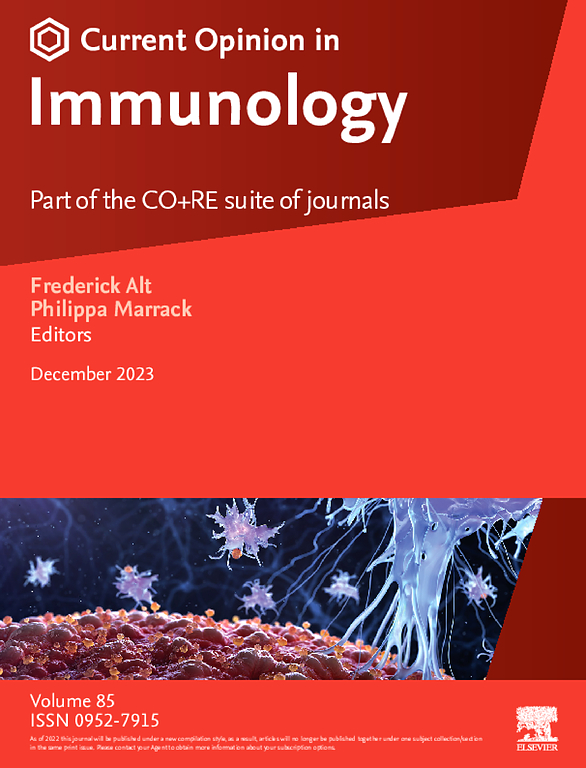Concept of dual immune inhibitors for the treatment of drug-resistant psoriatic disease
IF 5.8
2区 医学
Q1 IMMUNOLOGY
引用次数: 0
Abstract
Biologic therapies have significantly improved the management of immune-mediated conditions like psoriatic disease, enhancing the quality of life of patients. However, monotherapy is often insufficient, especially in cases of relapse, concomitant psoriatic arthritis, and involvement of difficult-to-treat areas: the scalp, palmoplantar areas, inverse regions, or genital areas. Patients with psoriatic disease also exhibit varying responses in their skin and joint manifestations to the same biologic, making dual biologic therapy a potential solution. Psoriasis is increasingly recognized as a systemic disease affecting multiple organs, and given the complex pathophysiology, different organs may respond differently to treatment. Targeting multiple immune mediators simultaneously could therefore lead to more effective disease control. Common combinations include TNF inhibitors with IL-17/23 antagonists. Despite its potential, dual biologic therapy remains infrequent, with most data coming from clinical case reports. This review explores dual immune inhibition as a therapeutic strategy, its rationale, and limitations for drug-resistant psoriatic disease.
双重免疫抑制剂治疗耐药银屑病的概念
生物疗法显著改善了银屑病等免疫介导性疾病的治疗,提高了患者的生活质量。然而,单药治疗往往是不够的,特别是在复发,伴有银屑病关节炎,以及涉及难以治疗的区域:头皮,掌跖区,逆区或生殖器区域。银屑病患者对同一种生物制剂也表现出不同的皮肤和关节反应,使双重生物治疗成为一种潜在的解决方案。银屑病越来越被认为是一种影响多器官的全身性疾病,由于其复杂的病理生理,不同器官对治疗的反应可能不同。因此,同时针对多种免疫介质可能导致更有效的疾病控制。常见的组合包括TNF抑制剂与IL-17/23拮抗剂。尽管具有潜力,但双重生物治疗仍然不常见,大多数数据来自临床病例报告。这篇综述探讨了双重免疫抑制作为耐药银屑病的治疗策略,其原理和局限性。
本文章由计算机程序翻译,如有差异,请以英文原文为准。
求助全文
约1分钟内获得全文
求助全文
来源期刊
CiteScore
13.30
自引率
1.40%
发文量
94
审稿时长
67 days
期刊介绍:
Current Opinion in Immunology aims to stimulate scientifically grounded, interdisciplinary, multi-scale debate and exchange of ideas. It contains polished, concise and timely reviews and opinions, with particular emphasis on those articles published in the past two years. In addition to describing recent trends, the authors are encouraged to give their subjective opinion of the topics discussed.
In Current Opinion in Immunology we help the reader by providing in a systematic manner: 1. The views of experts on current advances in their field in a clear and readable form. 2. Evaluations of the most interesting papers, annotated by experts, from the great wealth of original publications.
Current Opinion in Immunology will serve as an invaluable source of information for researchers, lecturers, teachers, professionals, policy makers and students.
Current Opinion in Immunology builds on Elsevier''s reputation for excellence in scientific publishing and long-standing commitment to communicating reproducible biomedical research targeted at improving human health. It is a companion to the new Gold Open Access journal Current Research in Immunology and is part of the Current Opinion and Research(CO+RE) suite of journals. All CO+RE journals leverage the Current Opinion legacy-of editorial excellence, high-impact, and global reach-to ensure they are a widely read resource that is integral to scientists'' workflow.

 求助内容:
求助内容: 应助结果提醒方式:
应助结果提醒方式:


